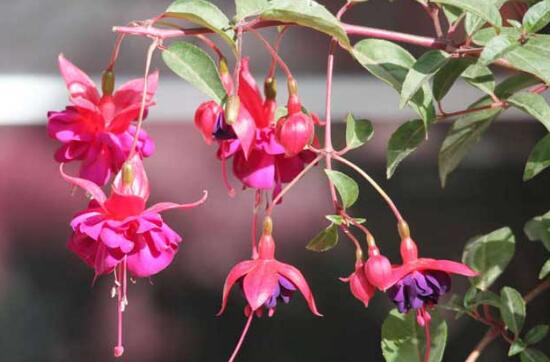Pruning techniques of Zanthoxylum bungeanum trees
Zanthoxylum bungeanum is a very important side dish in the south, and it is most widely used in Hunan, Sichuan and other provinces. Its planting area is also expanding, pepper in the planting is the need to do a good job of management. Pruning is a key work, because pruning is actually relatively large, if it is not pruned properly, it will reduce the permeability and affect the yield. Then the following editor has brought you the pruning techniques of pepper trees, let's have a look!

1. Pick the heart
Zanthoxylum bungeanum trees should do a good job of heart-picking during the growing period, and remove the young parts at the top in time before the new shoots grow. The main purpose is to promote the secondary growth of branches and accelerate the formation of tree crown. Picking the heart in time in the middle of May is beneficial to flower bud differentiation. Then the coring before the physiological fruit drop is beneficial to pollination and fruit setting, and it is beneficial to the expansion of the fruit, promote the growth and advance the ripening time. It can also inhibit the growth of branches and ensure the robust growth of shoot buds.
2. Thinning branches
The main purpose of branch thinning is to remove the basic branches of Zanthoxylum bungeanum tree, and the main parts of thinning are the old, weak, dead, overlapping and over-long and over-dense branches of diseases and insect pests. Branch thinning can reduce nutrient consumption, improve permeability, enhance the growth ability of inner-bore branches of Zanthoxylum bungeanum, and promote photosynthesis and flower bud differentiation. Thinning branches in the Lunar New year can also prevent prickly ash trees from appearing in big and small years. When the branches are larger, do not remove them all at once to prevent the wound from being too large and reduce the growth of the prickly ash tree. And it can also lead to infection, cause a variety of diseases and insect pests, and make the branches grow too much.
3. Injured branches
The main purpose of branch injury is to reduce the growth of top branches and promote the growth of lower and inner branches, which is beneficial to flower bud differentiation and improve flowering and seed setting rate. Before the prickly ash tree germinates in spring, it should be cut to the cortical layer by ring cutting at the top and bottom of the branches or buds. This can effectively hinder the lower transport of nutrition and water, conducive to the growth of buds, the formation of robust branches. Injured branches have many methods, such as twisting branches and twisting shoots, the main purpose of which is to control the downward transport of nutrients, improve fruit setting rate and promote fruit growth.
4. Quzhi
The main purpose of curved branches is to change the growth of horizontal and drooping branches, which can reduce the growth rate of apical branches. Limit the uniform speed of nutrition and water, prevent the branches from growing too much, and reduce the growth of the top branches. This can ensure that nutrition and water are concentrated on robust fruiting branches, prevent uneven distribution of nutrients, and reduce flowering and seed setting rate. And can effectively reduce the phenomenon of excessive branch growth, prevent excessive consumption of nutrients, and increase planting costs.
The above is a brief introduction to pruning technology of Zanthoxylum bungeanum. Pruning of Zanthoxylum bungeanum not only has different pruning methods, but also we have to adjust the pruning position and pruning methods according to the growth and age of prunes. To ensure that Zanthoxylum bungeanum can grow healthily, increase yield and expand their own planting benefits. That's all for today's introduction. This article is for reference only. Thank you for your reading and support.
- Prev

What to do if the lantern flower leaves turn yellow, reasonable light / control of water and fertilizer / timely change of pot soil
For the lantern flower, you should have seen it, it is shaped like a lantern, but also like a handstand clock, so it is also known as the inverted golden bell. Although the beauty of the lantern flower mainly lies in its flowers, it can also affect its beauty when its leaves turn yellow. So, what should I do if the leaves of lantern flowers turn yellow and soft? To this
- Next

Propagation methods of Lycium barbarum
Propagation methods of Lycium barbarum
Related
- Fuxing push coffee new agricultural production and marketing class: lack of small-scale processing plants
- Jujube rice field leisure farm deep ploughing Yilan for five years to create a space for organic food and play
- Nongyu Farm-A trial of organic papaya for brave women with advanced technology
- Four points for attention in the prevention and control of diseases and insect pests of edible fungi
- How to add nutrient solution to Edible Fungi
- Is there any good way to control edible fungus mites?
- Open Inoculation Technology of Edible Fungi
- Is there any clever way to use fertilizer for edible fungus in winter?
- What agents are used to kill the pathogens of edible fungi in the mushroom shed?
- Rapid drying of Edible Fungi

